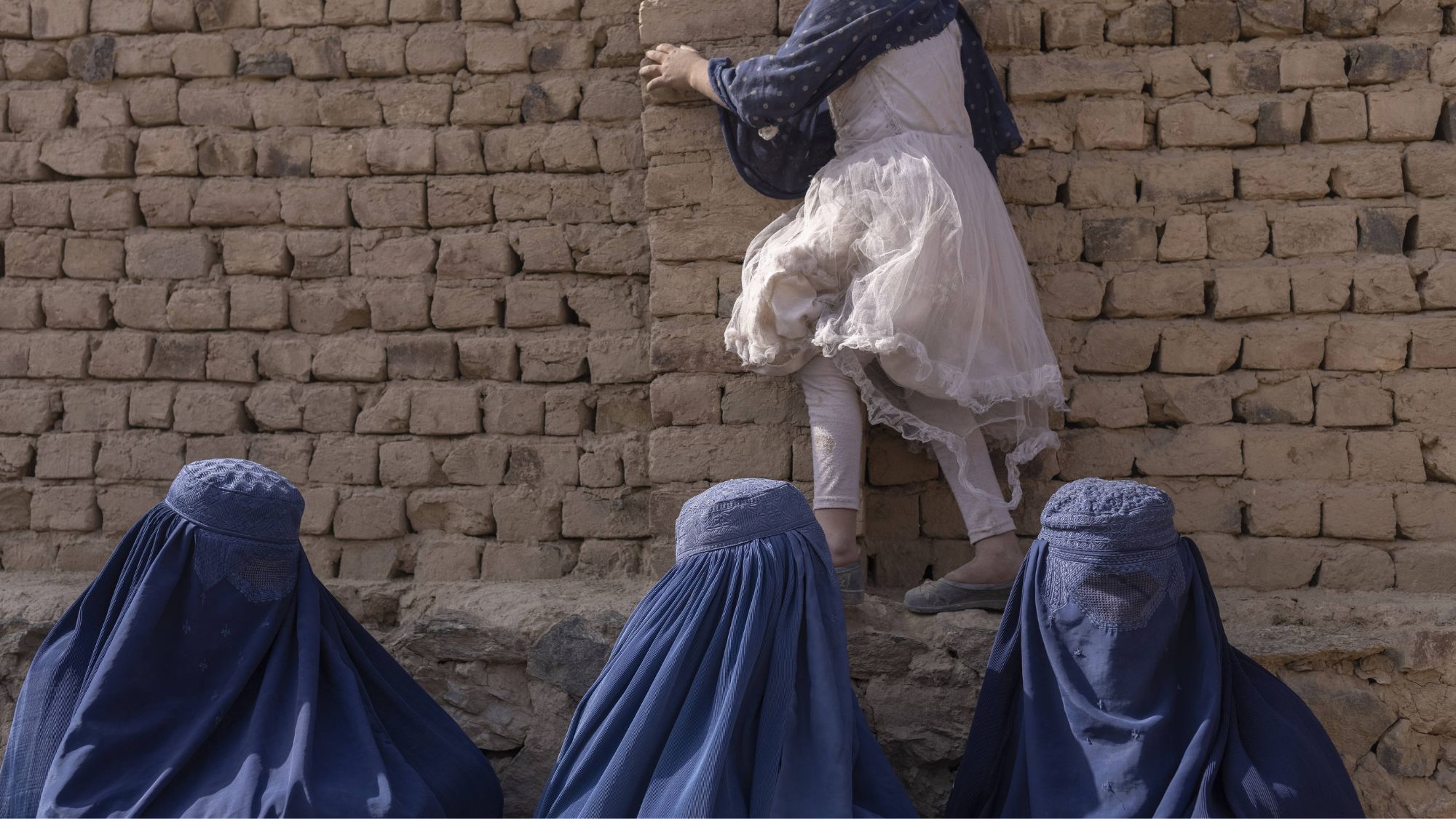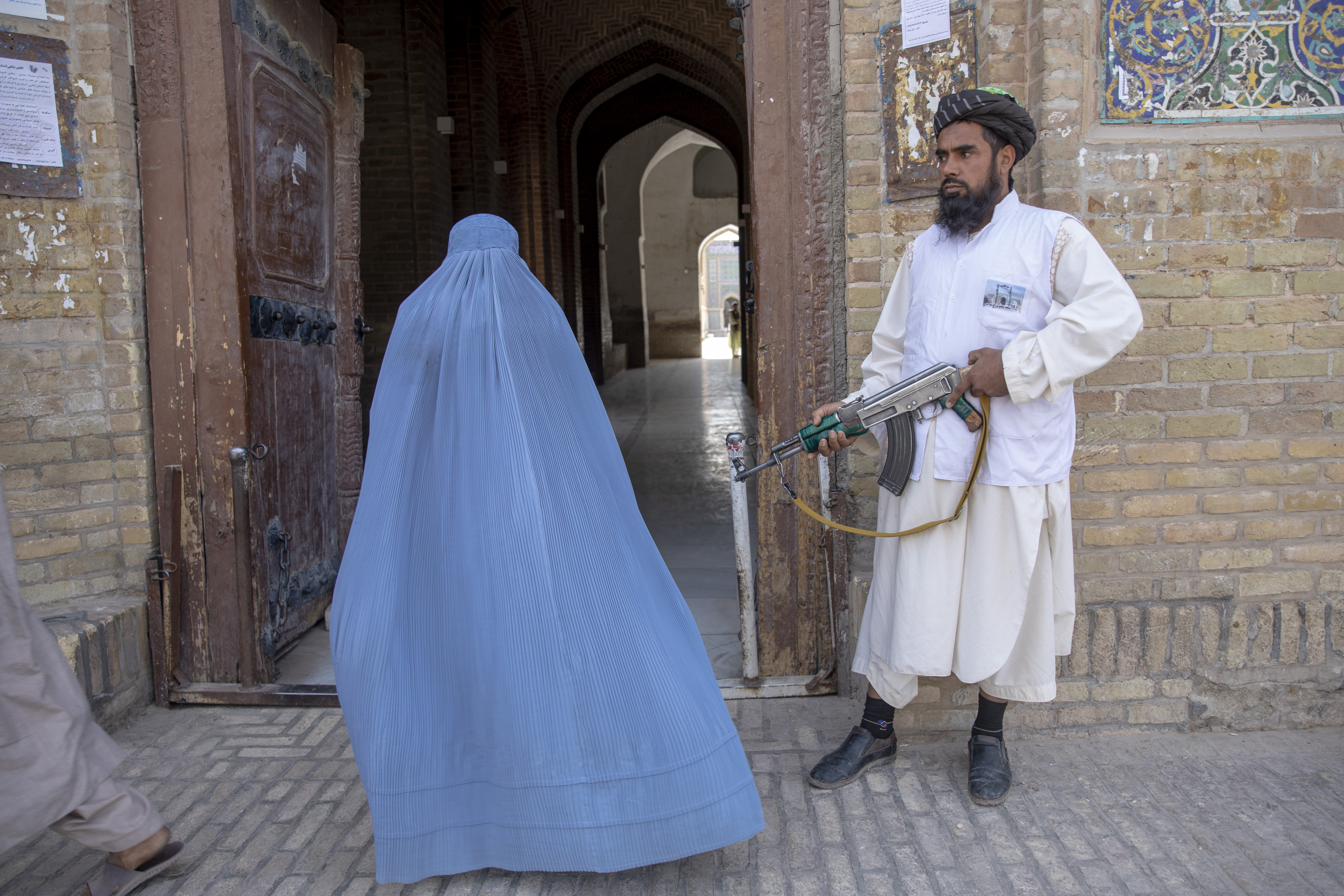International court wants to arrest Taliban leaders over human rights abuses of Afghan women
After years of systemic oppression, Afghan women might finally see some justice served.


Afghan women have been systematically oppressed—arrest warrants for Taliban leaders might finally see some justice served.
The International Criminal Court (ICC) has issued arrest warrants for leaders of the Taliban in Afghanistan, holding them accountable for the crime against humanity of persecution by gender.
The decision marks a significant step forward in the fight for justice for Afghan women and girls, who have endured the brutal misogyny of a regime that has tried to erase their existence. The Taliban’s oppressive rule has stripped them of their fundamental rights, including access to education, employment, freedom of expression, and movement.
Speaking at The Nobel Peace Conference last year, Fawzia Koofi—the first woman deputy speaker of parliament in Afghanistan and former member of peace negotiations with the Taliban—spoke on behalf of the 17 million women in her home country who are banned from speaking in public, singing, reciting, and from speaking to a man who is not their relative…the Draconian list goes on. Koofi explained: “It’s not about the restriction, it’s about the feeling of being less than a human, being controlled for your gender, that’s inhuman”.
Today, in a landmark case, the ICC has acknowledged the inhumanity Koofi spoke of and is seeking justice.
Since the Taliban took power in August 2021, they have imposed the world’s harshest restrictions, barring girls from school, excluding women from workplaces, enforcing full-body coverings, and even banning women from speaking outside their homes. Women are also prohibited from speaking loud enough inside their homes that they might be heard outside of them.
Afghanistan is the most restrictive country for women, ranking 177 out of 177 on the Women’s Peace and Security Index. Despite the dire situation, 87% of women in Afghanistan are still hopeful about the future. The request for arrest warrants represents a global win for women and girls, signalling a major development in international law to safeguard their rights.
Marie Claire Newsletter
Celebrity news, beauty, fashion advice, and fascinating features, delivered straight to your inbox!

A Taliban fighter guardes the Herat Grand Mosque. The Taliban regained control of Afghanistan and its capital Kabul in mid-August of 2021, almost 20 years after they were ousted from power by a US-led coalition in 2001.
If arrests are successfully made, this could lead to the first-ever International Criminal Court (ICC) convictions for gender persecution, underscoring the importance of international justice and ensuring that no one is above the law.
Karim Khan QC, the ICC’s prosecutor, today announced that his office is seeking two applications for arrest warrants after establishing that “there are reasonable grounds to believe” that Haibatullah Akhunzada, the supreme leader of the Taliban, and Abdul Hakim Haqqani, the Taliban’s chief justice, are both criminally responsible for the crime against humanity of persecution on gender grounds.
“Afghan women and girls finally have a chance to secure justice for the cruelty they have endured since the Taliban’s takeover,” added Binaifer Nowrojee, president of the Open Society Foundations. “Without the ICC and other international tribunals, Afghan women and girls would have nowhere else to turn to hold the Taliban accountable.”

Mischa Anouk Smith is the News and Features Editor of Marie Claire UK.
From personal essays to purpose-driven stories, reported studies, and interviews with celebrities like Rosie Huntington-Whiteley and designers including Dries Van Noten, Mischa has been featured in publications such as Refinery29, Stylist and Dazed. Her work explores what it means to be a woman today and sits at the intersection of culture and style. In the spirit of eclecticism, she has also written about NFTs, mental health and the rise of AI bands.
-
 New Look’s spring collection has dropped - As a picky fashion editor, I’m seriously impressed
New Look’s spring collection has dropped - As a picky fashion editor, I’m seriously impressedSpring trends at affordable prices
By Jazzria Harris
-
 I'm the founder of an ethical brand marketplace - why, in the wake of tariff-gate, protecting independent businesses is more important than ever
I'm the founder of an ethical brand marketplace - why, in the wake of tariff-gate, protecting independent businesses is more important than everThis Earth Day, the founder of Wolf & Badger shares why protecting sustainable brands is so pivotal.
By Ally Head
-
 Three ways to enhance your skincare routine with technology
Three ways to enhance your skincare routine with technologyBy Jenny Proudfoot
